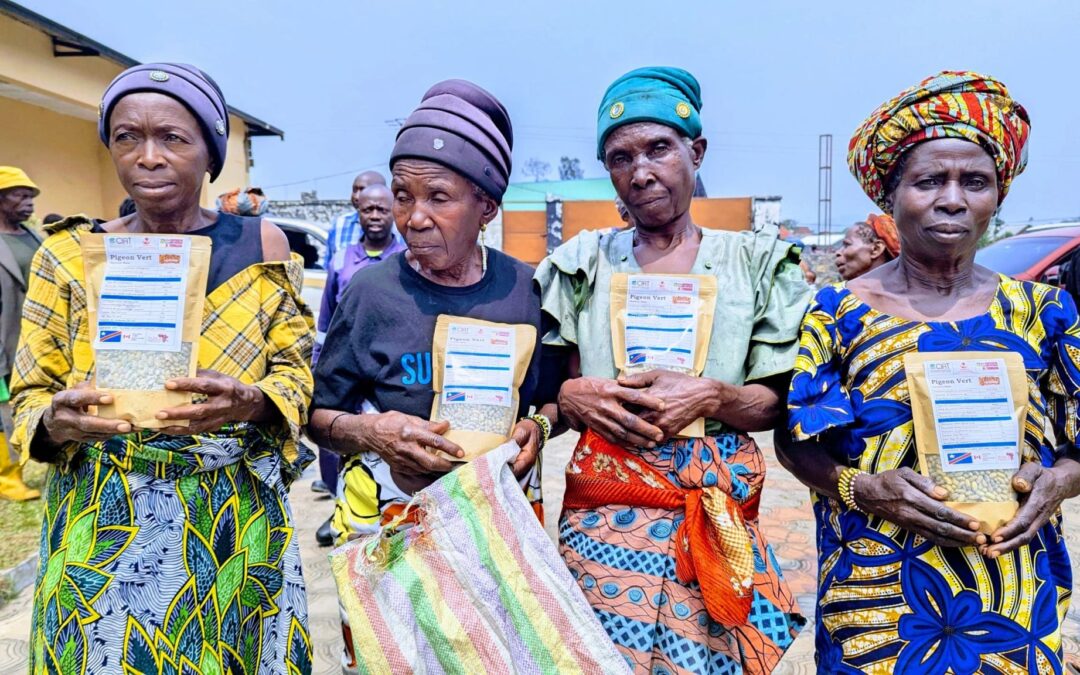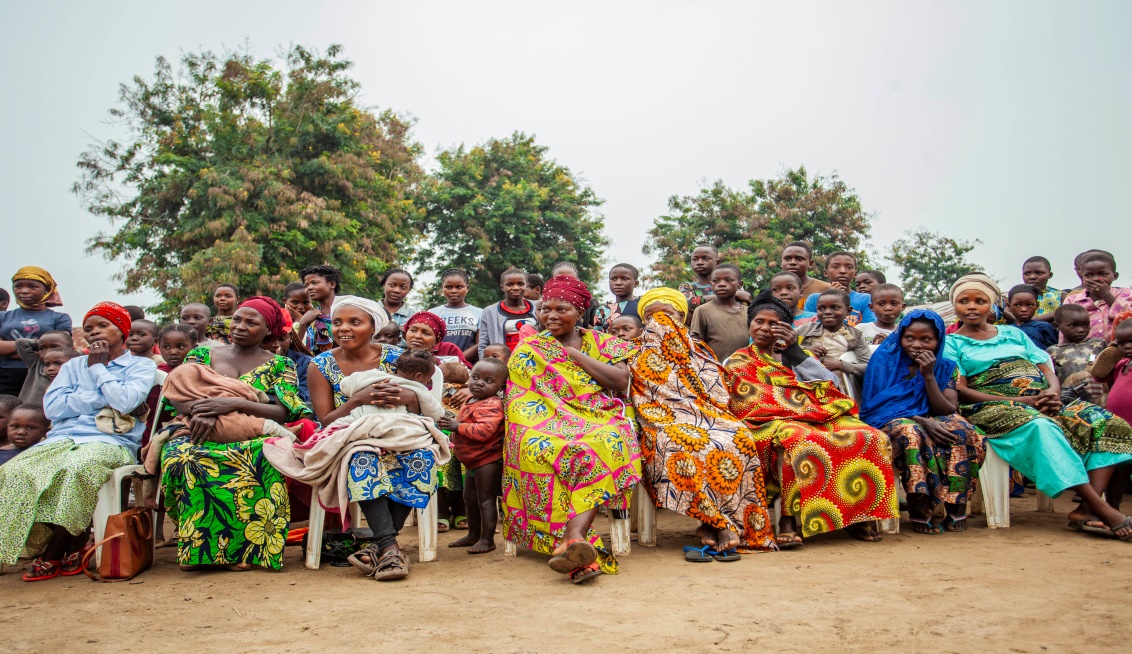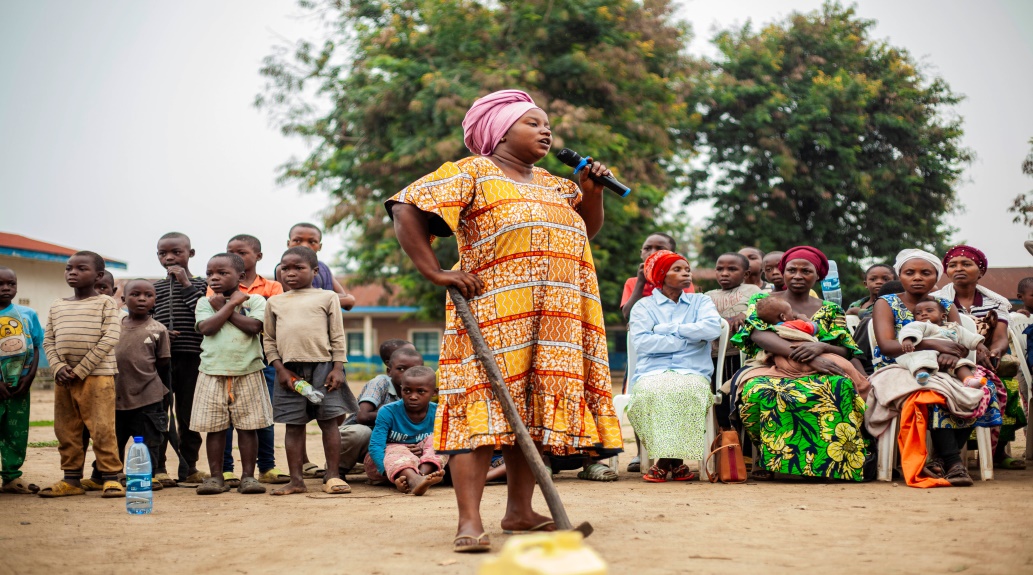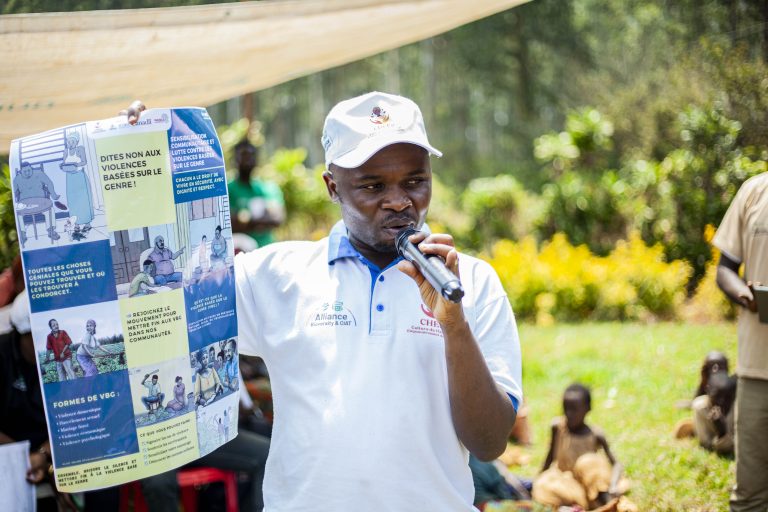By Bola Amoke Awotide, Julie Ntawinja, Lydie Mulonda, Yohane Chideya, Hosny Dunia, Richard Kataliko, Lucky Kalisya, and Jean Claude Rubyogo
Once marked by displacement and silence, the fields of Masisi are now alive with purpose. In this post-conflict corner of the eastern Democratic Republic of Congo (DRC), a unique transformation is underway. Women, many of whom have returned from years of war and loss are rebuilding their lives with something deceptively simple: the bean. Through the Beans for Women Empowerment (B4WE) Project, farming has become more than survival. It’s a strategy for resilience, a path to economic independence, and a powerful tool in the fight against malnutrition.
Led by the TUUNGANA Agropastoral Cooperative and backed by local and international partners, these women are not just planting seeds, but reclaiming agency over their land, their bodies, and their futures.
“Every field we plant is a statement that we are back and capable,” says Joanna Zaina Hakizinka, President of the Board of Directors of TUUNGANA. “This land has seen war and loss, but now, it’s a space of rebirth.”
Planting seeds of resilience
The B4WE Initiative, implemented by the Alliance of Bioversity International and CIAT (The Alliance) through Pan-Africa Bean Research Alliance (PABRA) with support from Global Affairs Canada, is a wide-reaching initiative across North Kivu, South Kivu, and Tanganyika. It empowers women through the cultivation of biofortified beans, rich in essential nutrients like iron and zinc, which are key in the fight against malnutrition.
Distributed in small seed packets of about 0.5-1 kilograms, these beans have become more than seed but a lifeline.
“With these beans, we are not just giving women crops. We are giving them tools for economic independence, better health, and stronger communities,” says Richard Kataliko from the Alliance working in North Kivu. “The entire beans value chain, from planting to marketing, is an entry point for women empowerment.”
Building knowledge and business skills
Capacity building in agribusiness is equally critical for strengthening household resilience. In the Chefferie of Luhwindja, in the territory of Mwenga South Kivu, a training session held on August 14–15, 2025, brought together 151 participants—127 of them women—to enhance their knowledge of agribusiness and financial literacy. Organized by the Agro-Pastoral Cooperative for the Self-Empowerment of Grassroots Women (CAPAFB) in collaboration with the Alliance, the training aimed to support women in transitioning from subsistence farming to entrepreneurial leadership.
“The idea is to transform the farmer into a businesswoman,” explains Nathalie Mufurume, President of CAPAFB. “They learn to manage their money, add value to their products, and negotiate access to markets. That is real empowerment.”
Topics included household budgeting, saving through community credit groups, post-harvest handling, and marketing.
Prince Mushosho, a Program Officer at CAPAFB, emphasized the importance of discipline: “Many families stay poor because they don’t track spending. We teach women to take control, starting with their own households.”
From fields to family tables: Fighting malnutrition
Biofortified beans are central to the nutrition strategy of B4WE. These beans are not only more resilient in poor soils but are also packed with proteins and minerals crucial for children’s development.
According to a nutrition expert and representative from the Union for the Empowerment of Indigenous Women (UEFA) Sifa Runiga, in families where women have control over what is grown and consumed, immediate improvements in children’s health are vividly visible.
In Masisi, mothers proudly report that their children are no longer suffering from anemia and chronic fatigue. Instead, they are going to school with bellies full of food and futures.
Cultivating peace and social cohesion
Beyond economic and nutritional impact, B4WE is also sowing seeds of social harmony in post-conflict areas. In places like Rutshuru and Walungu, the Alliance, through PABRA, has launched community awareness campaigns to tackle gender-based violence (GBV), a hidden but widespread barrier to women’s progress.
Held in August 2025, these sessions combined local theatre, open discussions, and expert-led training on GBV identification, prevention, and reporting. In Kiwanja, Rutshuru, over 100 community members, comprising men, women, and children, participated in one such campaign, hosted by local partners such as AJECEDEKI, GEAD (Study and Action Group for Well-Defined Development), Congolese Solidarity League (LSC), as well as the Gender Division.
“The man is not the only problem, but he must become part of the solution,” said one woman during the discussion. This sentiment was echoed by young Aminah Kabugho, a student from Rutshuru: “Girls are overburdened. We are left out of school and expected to do everything at home. But I will teach others what I’ve learned so we can change this.”
Meanwhile, in Ciherano, Walungu, women spoke out about how GBV plays out economically.
“Our husbands take over the profits from our bean harvests. They spend it on themselves, and we are left hungry,” lamented Nabintu, a local farmer. “This training has shown me that even that is violence, and it must stop.”
A model for rural transformation
With its five interconnected pillars of nutrition, agribusiness, seed systems, gender, and land rights, B4WE is being hailed as a model for rural transformation in fragile contexts. At its core, B4WE recognizes that real development does not come from above, but grows from the ground, in the hands of those who work it.
“Each bean harvested is a symbol. It tells the story of women who refused to be victims. Who took up the tools of farming instead of fleeing. Who chose peace over pain,” added Hakizinka.
Looking Ahead
The vision for the future is clear: stronger women, stronger communities. As the B4WE project expands, so does the hope it plants. There is still much work to be done, more land to access, more voices to uplift, more policies to change, but the roots are taking hold.
Looking ahead, the success of B4WE offers a model not just for recovery, but for lasting transformation. With continued investment, stronger partnerships, and growing local leadership, this initiative could scale to reach even more women across the region.
Cover Image📸: With beans in hand, women in eastern DRC rebuild their lives





